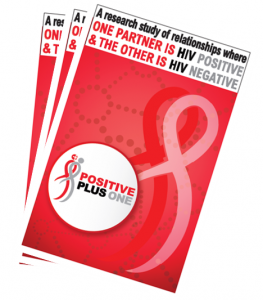There are thousands of people in Canada who are in a serodiscordant relationship, yet we know very little about their experiences and needs

 Marcus and David have been dating for three years. Marcus is HIV-positive and David is HIV-negative. David was worried when he told his parents that his new partner was HIV-positive, but after they saw how happy Marcus makes him, they have welcomed Marcus into their lives. At the same time, they still worry that their son may become infected.
Marcus and David have been dating for three years. Marcus is HIV-positive and David is HIV-negative. David was worried when he told his parents that his new partner was HIV-positive, but after they saw how happy Marcus makes him, they have welcomed Marcus into their lives. At the same time, they still worry that their son may become infected.
Faith is living with HIV, and her partner, Scott, is HIV-negative. Faith often finds herself having to educate Scott on what she has to do to manage her condition and Scott has had difficulty understanding because information changes quickly. They fight more often — about sex, about health —and about where they see their relationship going.
These are hypothetical examples of two different types of relationships that involve HIV, yet many other couples have their own, unique experiences. So it is hard to know what kinds of experiences are the most common for people in these relationships.
Professor Liviana Calzavara, a leading expert in HIV at the University of Toronto, estimates that there are over 17,000 people in Canada living in relationships where one of the two people has HIV (what are called serodiscordant relationships). Although that number is only an estimate, one thing is clear: There are thousands of people in Canada who are in a serodiscordant relationship, yet we know very little about their experiences and needs.
There are a great many policies, studies and services that are all about the individual living with HIV, but far fewer that seek to understand these relationships. Both people in serodiscordant relationships can face the stress of potential HIV transmission. They can also encounter stigma, making it less likely that they talk about their relationship to anyone. There have also been rapid changes in HIV treatment and prevention that people in serodiscordant relationships need to navigate. We need to know more, and we need to know if we as a society can do more to meet the needs of people in these relationships.
In order to fill this gap in our knowledge, Dr. Calzavara and her colleagues have created the first national Canadian study of people in serodiscordant relationships. This study, called Positive Plus One (Positif Plus Un in French), is currently recruiting participants from all over Canada. These researchers hope that the study results will be useful to healthcare professionals, service providers, policy makers, those living in serodiscordant relationships and society in order to improve current HIV services and societal attitudes. This study presents a real opportunity to improve the lives of people in serodiscordant relationships. Since Positive Plus One’s team is composed of service providers, physicians, and academics, your answers may help to shape what services are available and how they are provided to people in serodiscordant relationships in the future.
You can take the online survey right now by clicking here for English and here for French. You can also call the study at 1-888-740-1166. You can take part if you are, or have been in, a serodiscordant relationship.
James Iveniuk is a post-doctoral researcher at the Dalla Lana School of Public Health and part of The Positive Plus One team, a group of academic researchers, physicians, and service providers from clinics and AIDS Service Organizations across Canada, headed by Dr. Liviana Calzavara.
